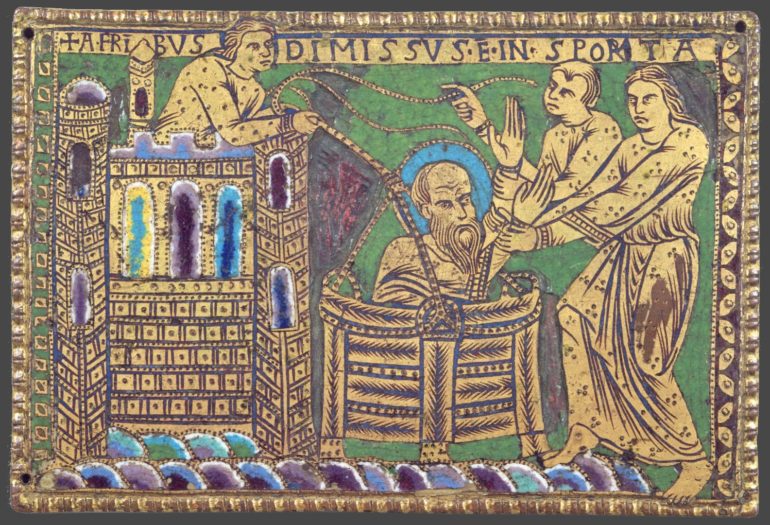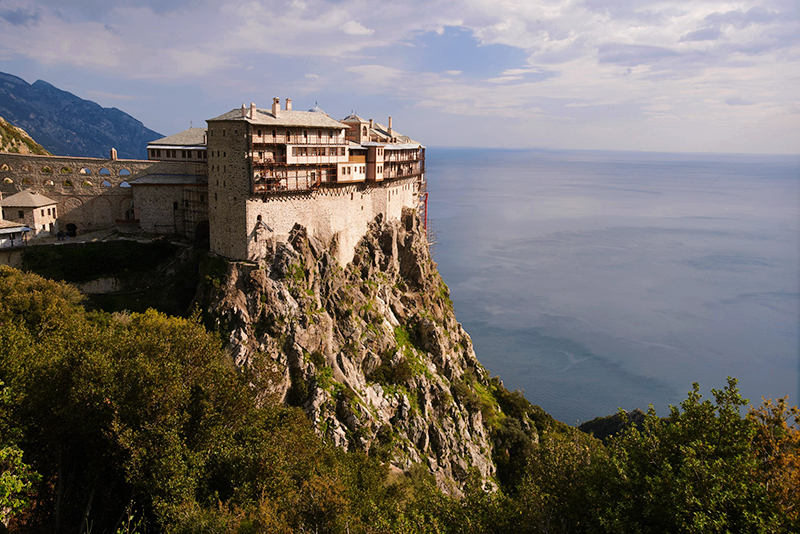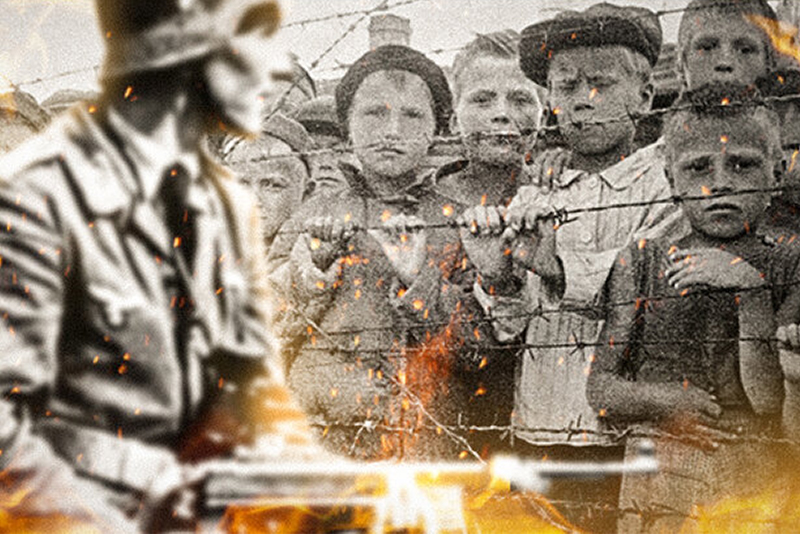
Is a Christian obligated to face any danger openly and always be ready for death? Is dodging danger always betrayal of the faith?
With the outbreak of the epidemic, many realized that prayer is almost the main thing that is needed and that can really help. But in reality, churches were closed for parishioners, the Sacraments became difficult to access – in the time they seemed to be most needed… Many had a heavy heart: what is it, the fear of the virus turned out to be stronger than our trust in God? Doesn’t it smell like apostasy from Christ? Doesn’t the Gospel promise that even a hair from a person’s head shall not fall on the ground without the will of the Heavenly Father (Cf. Mt. 10: 29-30.)? Doesn’t the Revelation of John the Theologian say that the fearful shall have their part with the unbelievers in the lake which burneth with fire and brimstone (Cf. Rev. 21: 8)?
The choice between “holy fearlessness” and “reasonable caution” is not new. It had to be made by the apostles, and then by their successors. But first of all, let’s look at the example of Jesus Christ Himself. An example that every Christian, by definition, must follow.
Let’s open the New Testament:
The Gospel of John says that after another dispute with the Jews, Jesus walked in Galilee: for he would not walk in Jewry, because the Jews sought to kill him (John 7: 1). He pretended that he would not even go to the Feast of Tabernacles in Jerusalem. Go ye up unto this feast, – said Jesus to His named brothers, – I go not up yet unto this feast: for my time is not yet full come (John 7: 8).
We find another episode in the Gospel of Luke. Jesus comes to the synagogue in Nazareth, reads a fragment from the book of the prophet Isaiah and draws the attention of the audience to one extremely unpleasant for them moment: God often leaves the Israelites, confident in their righteousness and chosenness, and blesses the pagans – people who apparently are far from the true faith , but sincere and do seek God.
And all they in the synagogue, when they heard these things, were filled with wrath, and rose up, and thrust him out of the city, and led him unto the brow of the hill whereon their city was built, that they might cast him down headlong. But he passing through the midst of them went his way (Luke 4:28-30).
What does it mean – passing through the midst of them? Alexander Lopukhin, Professor of the St. Petersburg Theological Academy assumed that the Lord used His divine power and, “with one imperious glance, He forced the people who were pressing Him to step back, and calmly walked them by.” Boris Gladkov, another well-known interpreter of the Gospel, expressed a similar opinion.
All this may puzzle us:
We remember that in Gethsemane, when Judas brought armed men there, the Lord did not resist them. The Apostle Peter tried to intercede for the Teacher, but He ordered him to put up again the sword into his place: Thinkest thou that I cannot now pray to my Father, and he shall presently give me more than twelve legions of angels? But how then shall the scriptures be fulfilled, that thus it must be? (Matthew 26:53-54)
Why, then, in Nazareth, the Savior, one might say, fled from the angry crowd?
Not because he “ran away from suffering” in general, but because he “waited for a certain time,” explained the interpreter of the New Testament, Blessed Theophylact Archbishop of Ochrid and Bulgaria: “He came to suffer for us; and now, when His preaching was still [just] beginning, He should not have given Himself up to death. “

If Christ had been thrown into a mountain abyss (or suffered some other death) at the beginning of His earthly ministry, He would not have performed that deed – the deed of saving us from sin and death – for the sake of which He came into the world. He would not have had time to gather the disciples who would become the foundation of the Church. He would not have taught them the secrets of the Kingdom of Heaven (even until the very crucifixion of Christ, they did not understand what He meant talking to them about His unity with the Father and guessed when he would finally become king). And perhaps the most important thing is that it was Christ’s death on the cross outside the fence of Jerusalem that was supposed to atone for the sins of mankind; a painful and shameful death, preceded by the betrayal of the disciple and the raging of the crowd. Why this is so is the mystery of God’s Providence. But such a death of Christ was predicted by all the prophets.
Let’s say Christ Himself had special reasons to avoid dying prematurely. But did He command us to flee from suffering?
The Lord warned the disciples against reckless courage. Sending them to preach in the cities of Palestine, He said: But beware of men: for they will deliver you up to the councils, and they will scourge you in their synagogues<…> when they persecute you in this city, flee ye into another (Mt 10:17, 23). Of course, Jesus did not teach them to be timid, “but taught them not to lightly expose themselves to danger, not to die, and not to harm those who were to benefit from preaching,” – this is how St. Cyril of Alexandria explained these words in the 5th century.
Other important words Christ spoke to his disciples shortly before His death, announcing to them the impending destruction of Jerusalem: And when ye shall see Jerusalem compassed with armies, then know that the desolation thereof is nigh. Then let them which are in Judaea flee to the mountains; and let them which are in the midst of it depart out; and let not them that are in the countries enter thereinto. For these be the days of vengeance, that all things which are written may be fulfilled (Luke 21: 20-22).
In fact, the Lord told the disciples: flee Jerusalem at the first sign of its siege. The fate of the city is a foregone conclusion, and your faith will have to be expressed not in heroic resistance to the enemy, but in leaving in time.
This is exactly what the Christians did during the First Jewish War, when, in response to the uprising of the Jews, the emperor Titus Vespasianus sent a punitive expedition to Judea led by his son Titus. Initially, the rebels were successful, but the Christians of Jerusalem remembered the words of Jesus and left the city in advance, while it was still possible. Then the Roman troops approached Jerusalem, stood under its walls for many months, and in August 70 they burst inside and destroyed everything in the city, including the Temple. According to the Jewish historian Josephus Flavius, during the months of the siege, more than a million Jerusalemites died – not only from hostilities, but also from hunger and diseases.
Christians, having fulfilled the will of the Lord, escaped destruction. They saved not only their lives, but also Christianity itself.
What is the conclusion from all this:
The Lord Himself has shown us an example of how to deal with danger. He never had any fear; remember how serenely He slept in the boat during the storm; how he constantly encouraged the apostles, telling them: “Do not be afraid!”; how courageously he stood before the priests and Pilate. And, nevertheless, in some situations, He clearly preferred to bypass the danger, and not overcome it heroically. Why?
Because Christ came to earth not to perform more or less petty feats and not to defeat more or less insignificant enemies. He came to accomplish the only Feat – to give His human life for the eternal salvation of many. He came to defeat one enemy – Satan, who subjugated the entire human race to sin and death. And He was not going to waste it on trifles.
And Christ did not set the task before His disciples to ignore any danger. On the contrary, He called them to be vigilant and warned that in the “days of vengeance” prepared by God for incorrigible sinners, Christians should step aside and wait out this terrible time away.

Obviously, the Lord does not expect from us some kind of exorbitant courage (which is often associated with exorbitant pride) and does not want us to mindlessly risk, as if forcing Him to intervene in the situation and help us out when we foolishly get into trouble. Such actions would be very similar to the temptation offered to Christ by Satan in the wilderness: If thou be the Son of God, cast thyself down: for it is written, He shall give his angels charge concerning thee: and in their hands they shall bear thee up. To this, as you remember, Jesus answered: It is written again, Thou shalt not tempt the Lord thy God (Mt 4: 6, 7).
Translated by The Catalogue of Good Deeds
Source: https://foma.ru/virusa-ispugalis-a-razve-hristos-hot-raz-pytalsja-izbezhat-gibeli-otvet-na-jetot-vopros-mnogih-udivit.html




